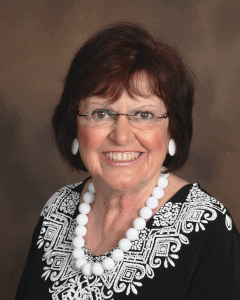Finding the right fit for customer service

K.T. Connor
By K.T. Connor
Customer service is a curious concept and can be quite befuddling. Does it mean excellence? Efficiency? Courtesy?
Some time ago I had to sort it out.
I was working with the souvenir shop manager of the baseball stadium my client owned. The manager was frustrated with one of her retail clerks.
“I can’t get him to stop socializing,” she muttered. “I hired him because he was friendly, but I didn’t realize how much time he’d spend socializing with shoppers. He doesn’t get people in and out quickly enough.”
In preparing for a team session with the manager and her clerks, I discovered the source of the frustration. The manager was someone we call a Doer-Thinker. She was a practical person, conscious of detail and a good logistics person. She valued efficiency and organization and saw customer service as quick, easy administration of a sale, sending the customer on their way quickly.
The retail clerk who frustrated her was a Feeler-Thinker. He connected immediately, with anyone who came into the shop. He loved getting to know the customers and, in fact, had them coming back in to see him even when they hadn’t intended to buy. If someone hadn’t decided to buy, the manager wanted them left alone while some of the other work was done. Fortunately for the manager and the clerk, the clerk’s shop sales were good, even with those who didn’t always buy, for they came in often enough to buy frequently.
Which one, the manager or the clerk, had a better take on customer service?
It depends. What I discovered is that situations require different emphases on service. For instance, I found that the Feeler-Thinker clerk was on the matinee shift when mostly grandmas and caregivers came in with their kids. They were not there to watch the game but to let the kids watch it. They came to see each other and socialize. That clerk was perfect for them.
He would not have been so perfect at the night games, when patrons came to the shop mainly to get something and get back to the game. He would have been as frustrating for them as he was for his manager.
How do you position a person for perfect customer service? I found that self-report assessments don’t help. One bank, for instance, hired people who said they were both very focused on the customer’s needs and on quick, efficient work. What the bank found out, though, was that they said that because they felt that’s what they should say when being hired. When we assessed their actual focus, we found quite a difference. Again, some were people-focused, some were efficiency-focused, some were even rule-focused. For this last group, heaven help the customer who didn’t fill out the deposit slip right.
So, customer service depends on both the environment and the decision style of the one serving. If I’m on an airline website and in a hurry to make a reservation, I don’t want someone chatting with me. Alternately, if I’m getting an error message about my reservation online, I do want someone who will listen to me and be patient with my questions.
As a manager, if I know the person’s decision style and they’re hired already, I can help them adapt to the situation and perform. On the other hand, if I’m hiring, the more objective I can be about a candidate’s decision style, the better fit I’ll get.
• K.T. Connor is a senior adjunct professor in the California Lutheran University Graduate School of Management.












